Inside the Engine Room with Marine Engineer Mustafa Kara
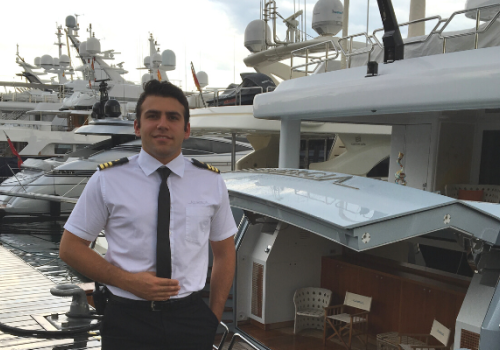
Growing up in a tight knit community in the coastal town of Bodrum, Marine Engineer Mustafa Kara describes himself as a citizen of the world with a voracious appetite for life and learning. Inheriting his father's talent for fixing things, he studied marine engineering at university where he discovered his own love of science and a passion for his trade.
Chatting over Zoom, Mustafa discusses his early years in Bodrum, how the commercial sector compares to yachting, and pays tribute to those who helped him along the way.
How was life growing up in the beautiful town of Bodrum in Turkey?
Growing up in Bodrum was the base that I built my life on. When I was a kid, Bodrum was a small tourist town with a population of 30,000 and like all the towns on the Aegean Cost, whether in Turkey or in Greece, the famous white houses are built so close to each other. Everything happens in those tiny streets and people see their neighbours as their families; everybody knows each other, and I remember playing with my friends in the streets until late night.
When the schools were closed, the tradition was to send kids to work so all of us grew up spending our summers working in some local businesses like a hairdresser, a market stall or a boatyard. The idea is to help kids to learn a craft, to prove themselves and gain self-confidence early in childhood. Being part of the town’s daily life we also learnt about our culture, solidarity, loyalty and fixing our mistakes. It might be the same for all small towns but what makes Bodrum special is that, thanks to the 5 million tourists who visit every summer, kids grow up knowing there's a world beyond Bodrum. As a result, people from Bodrum are usually outgoing and can adapt themselves to different cultures. I have always been a world citizen who carries his local culture within.
Which came first, a love of the sea or a love of engineering?
In Bodrum, every street leads to the sea and you can swim everywhere. When you live in a coastal town, the sea is a part of your life, it's inevitable, but I often wondered what it was like for other students seeing the sea for the first time when they came to university. I think I had a similar feeling the first time I was in the Indian Ocean, it's a unique experience.
Regards engineering, my dad fixes everything - we have never called a service to our house - so my admiration and talent comes from him. I spent a lot of time helping him in my free times and at first I hated it, but then the time came to decide what to study at university. Marine engineering was not one of the top departments but I applied for a four year degree at a good technical university and after studying Newtonian physics, mechanics, heat transfer and fluid mechanics, engineering became a passion.
What attracted you to pursue a career at sea?
I wanted to pursue a career that would give me the opportunity to mix with different cultures, something I could do anywhere in the world that would also put me in a strong financial position. I considered becoming an attaché or an ambassador but in the end I chose to be a marine engineer.
After graduating, I did an internship and I got my EOOW Unlimited licence but, because I have a commercial background I joined my first cargo vessel as an engine cadet to complete my university education. After I got my Engine Officer of the Watch certificate of competency I worked on bulk carriers as 3rd engineer. It was an enormous 189m 58,000 GT vessel with four cranes.
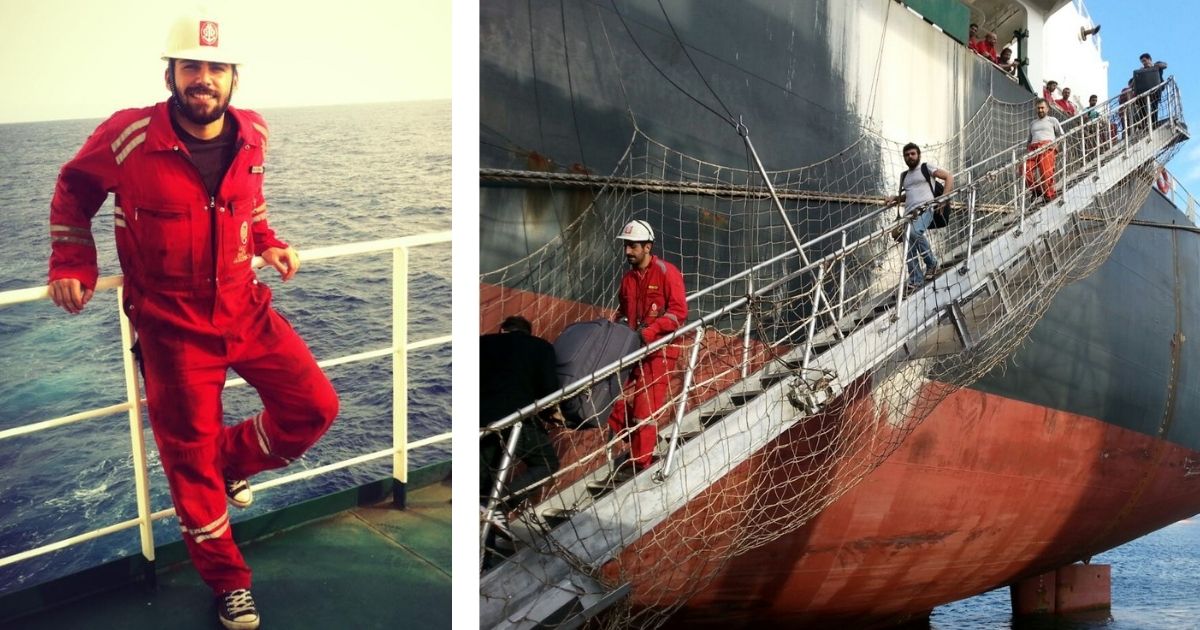
How did you get your first job on a yacht and what type of vessel was it?
It was the summer of 2015 and I was in Bodrum for a holiday. I had a lot of friends working on private yachts berthed there as Bodrum has a number of marinas which welcome superyachts from all over the world. One morning I got a call from a captain of a 38m Heesen explorer yacht under refit and they urgently needed an engineer, preferably with commercial experience. I went to meet the captain the same day and before I left he offered me the job.
You’re now the chief engineer on a 45m explorer yacht, what’s the scope of your role day to day?
Working on an explorer yacht we make long trips from Argentina to Norway, or from the East Med to the west coast of the USA. As chief engineer, I have to keep all systems working in good condition and think ahead to be prepared for all possible scenarios. I have to synchronize my brain to understand each processes sequence by sequence and keep improving my knowledge. Personally, I try to know everything and plan everything; I do not like surprises!
What are the main differences between working as an engineer on a commercial ship compared to a large yacht?
I can't say there's a big difference in terms of engineering because the principles and systems are based on the same Newtonian physics, although the components are smaller on yachts. The main difference concerns the users - the different viewpoints of yacht engineers compared to commercial engineers, which stems from education. We should make one thing clear: An engineer’s job is not fixing things; an engineer is there to prevent systems from breaking in the first place. If an engineer needs to keep fixing things I would understand that he/she isn’t doing their proper job! If you don’t hear the alarms sounding too often, it means the engineers are taking all precautions and noticing issues before they become a problem.
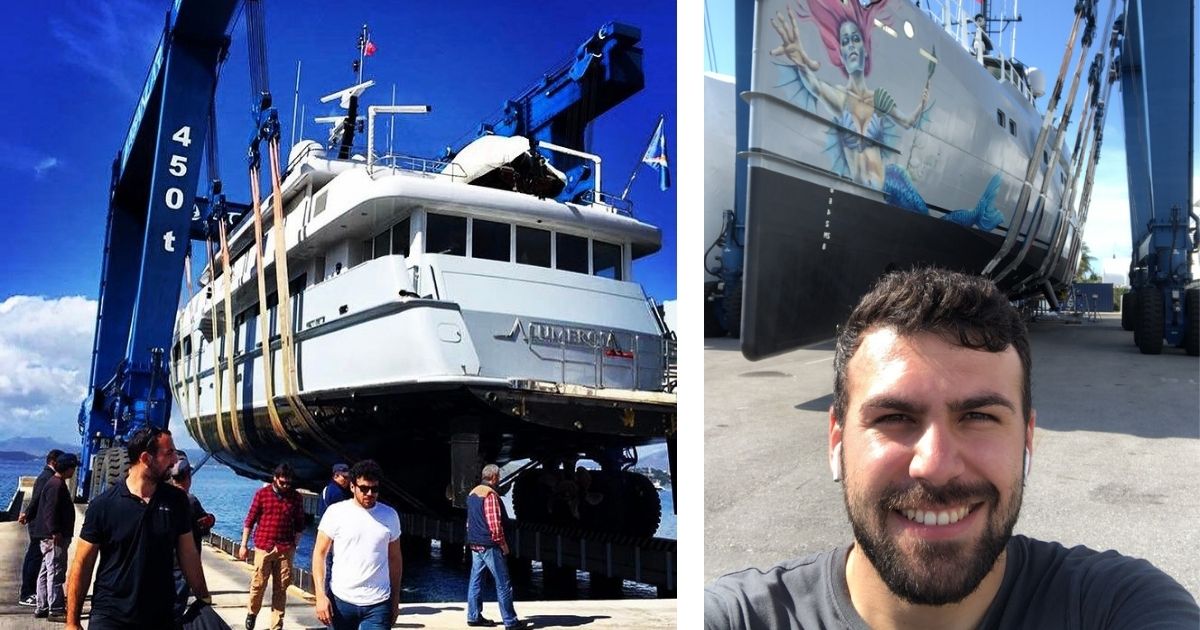
The main difference between working on yachts and cargo vessels is the places they go. There are a lot of shiny marinas all over the world but most of the yachts always go to the same areas - the South of France, Sardinia, the Balearics and the Caribbean. On cargo vessels, it's always a surprises. You might go to a coal terminal in Chile and meet the locals who share their stories about how they developed the town from a working camp and stories about relatives lost in the mine. The next port might be a canal town in Japan where you can experience the culture and traditions before America took effect on the country. You might also find yourself in India trading your old flip flops, a can of Coke and a few bars of soap for a SIM card. You see the relativity of values and goodness. Yachting doesn’t really give you the chance to see the many different aspects of life - you only see wealth.
What do you love most about your job?
Two things give me the greatest pleasure. The first is putting everything together after an overhaul and seeing everything work perfectly. The second is having nice conversations with people from different countries and cultures with different stories, whether crew or not.
I have always wanted to be a complete person, not only a good engineer, but someone who can speak, read and write in different languages, who can dance, who has a taste for literature, music and fine arts, who helps the world to be a better place, a good son for my parents, a loyal friend, a good husband and a lovely father for my children. The job gives me these opportunities in many ways, because every new place I visit, every new culture, every conversation makes my connection with life stronger. As seafarer we have this chance; seafarers have made an impact on civilization throughout history.
What do you enjoy doing in your time off?
Finally, after nine years, I work on rotation, so half of the year belongs only to me. I have a small house in Bodrum with a beautiful garden full of fruit trees. I love literature and fine arts so I read a lot and I translate articles from English and Spanish to Turkish, or the other way round. I also like writing short stories - I wrote a novella about a long-distance relationship between Panama and Turkey in the 1980s, connecting the countries’ historical events, and it was published in Turkey last August.
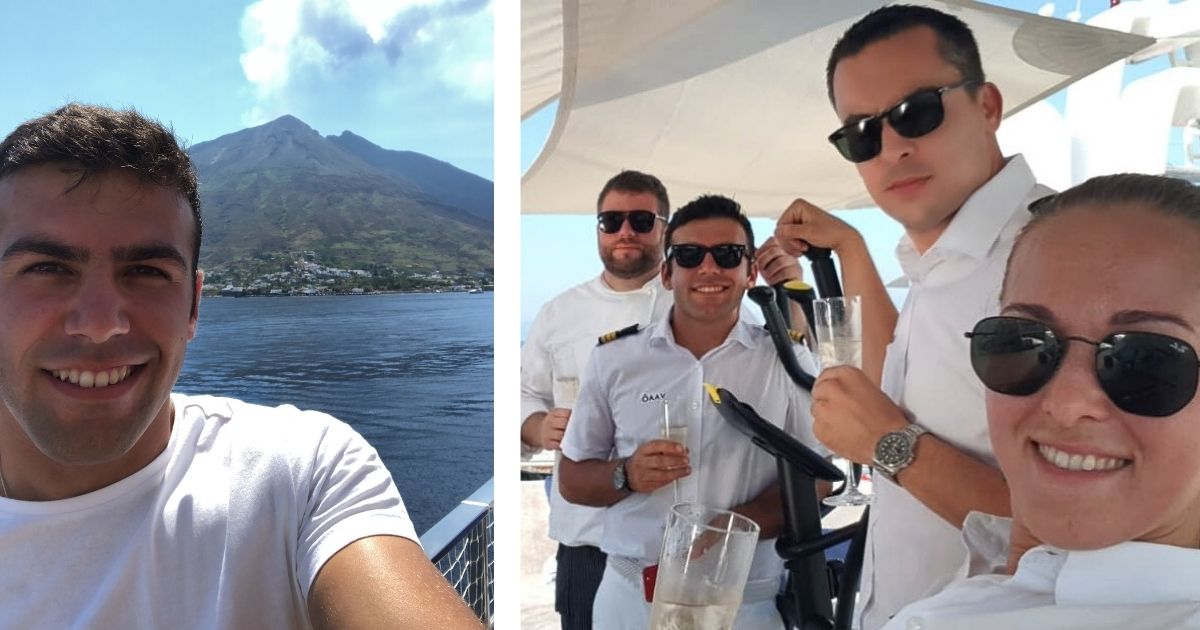
You’re currently in the shipyard in West Palm Beach – what’s the mood on the ground among fellow crew?
We came here to Rybovich for the boat show two months ago. The show was quite crowded - not like the year before the pandemic of course but still something to be happy about. Restrictions are not so tight here in Florida compared with Europe - potential buyers can easily fly here to visit the boats which is a reason for boats for sale to stay in USA. There's also an intense flow in the marina and the shipyard as boats want to complete their maintenance before crossing back for the Med season.
On the crew side, we're happy to have a job under pandemic conditions - I know a lot of seafarers were unemployed last year. Conditions are slowly getting back to normal here, all the restaurants and beach clubs are open and there is no curfew. We can also access the vaccine here in the USA - all our crew has already been vaccinated and most of the boats have the same opportunity now.
What are engineers currently talking about – what are the hot topics?
For the past 10 years we've been talking about regulation updates and what we can do to make our vessels more eco-friendly. We've tried to use low-sulphur fuels and exhaust sanitation, and now we have new engines which produce lower emissions without any integrated component. Turbo-hybrid engines are also being considered and plans are under way to build the first private yacht powered by nuclear energy. A lot changes and improvements are happening on the engineering side and we'll probably have to upgrade ourselves.
What's your ultimate ambition?
I would like to continue progressing in the yachting industry. I have already completed my sea time to get my 2nd Engineer Unlimited CoC. After that I will need to be on board for only 30 months more to get my Chief Engineer Unlimited licence which is the top qualification an engineer can have in the maritime industry. I would like to continue working as chief engineer but someday I plan to have my own management company which organises dry-dock and survey preparations and maintenance periods for the smaller yachts.
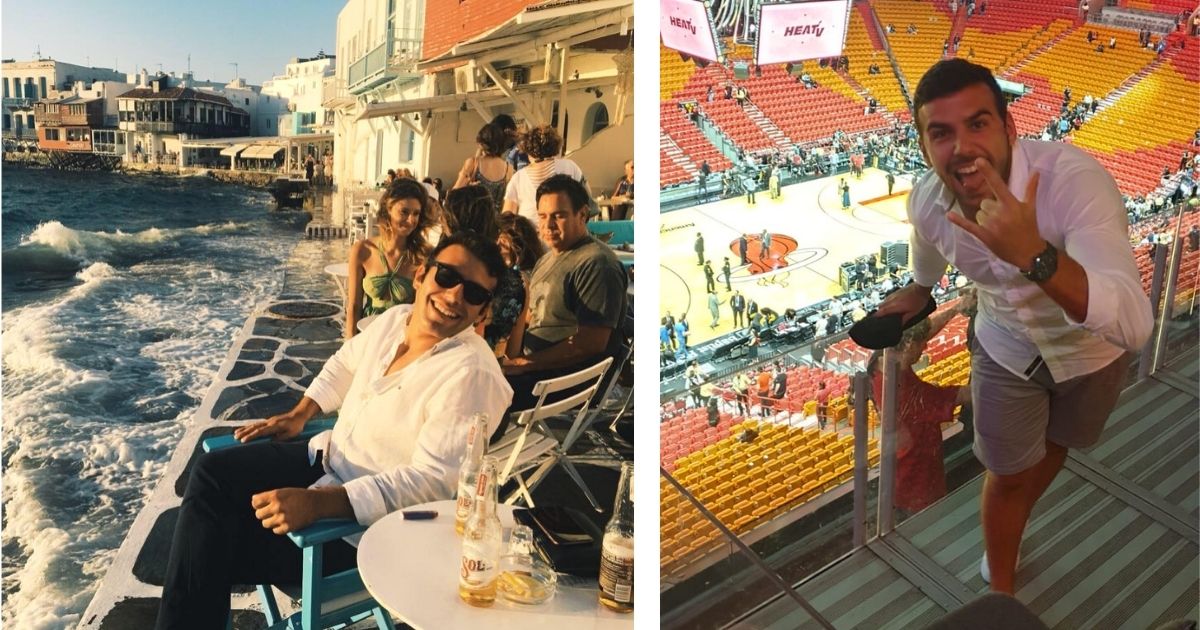
What advice would you give to someone looking to work as a yacht engineer?
Education! Please remember that experience is crucial but it may be a longer and painful way to learn without knowledge.
You were a great admirer of Sue Price of Viking Crew in Fort Lauderdale who sadly passed away recently - she made quite an impact on you?
Yes, I met Sue Price only once in my life, in October 2019 in her office. But I still remember how I felt after I left her room. She was a very special person who understands and cares for people’s sensitivities and dreams. Everybody who had only a minute with her could sense that she was a special one; she was somebody from the sky. We never spoke again but I've always remembered that conversation. It was so nice to know that a person like Sue existed in the world and she will always be remembered. Thanks to OnboardOnline I would like to share my condolences with her family. We need more people like Sue.
Sara Duncan has the same heroic attitude - I often see her fighting for crew rights and wellbeing on social media. She bravely steps up, makes you believe in yourself and gives you opportunities which might change your career. She finds the good and makes the good the better. We don't see that very often in corporate structures. I have great respect for these people.
With thanks to Crew & Concierge


Post your comment
You cannot post comments until you have logged in.
Login to post a commentComments
Comment by: SELVARAJ VASANTHAN RAPHAEL - 29 Jul 2021, 03:28 (3 years ago)
It was a good read. Thanks for sharing. can you pls guide me regarding switching from product tanker ships(30000GT) to superyachts as an engineer. I am currently holding UNLIMITED COC for OOEW from India with 18 months of fourth engineer and 6 months of third engineer experience. I have a valid French long stay visa and US C1/D
No one has commented on this page yet.
RSS feed for comments on this page | RSS feed for all comments